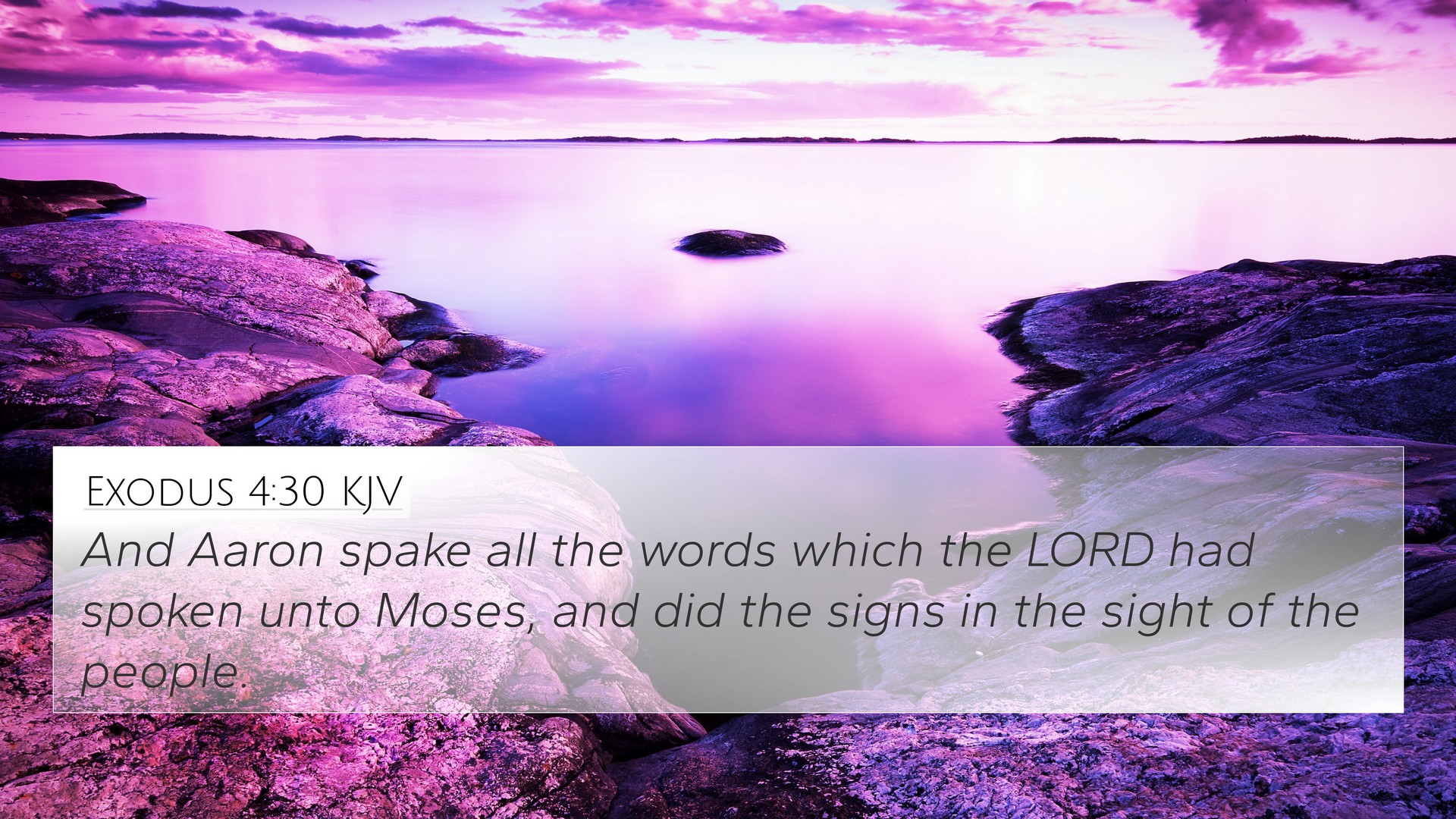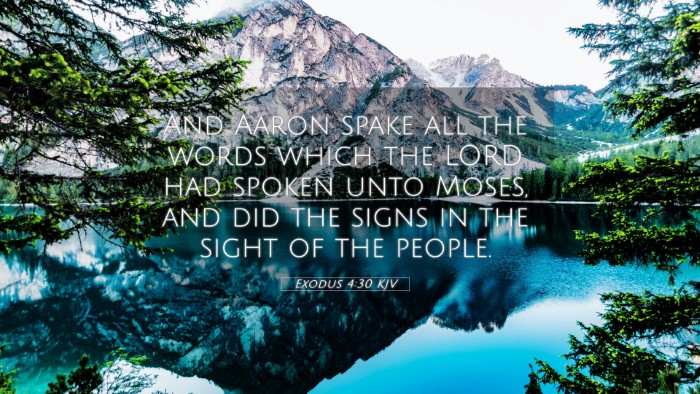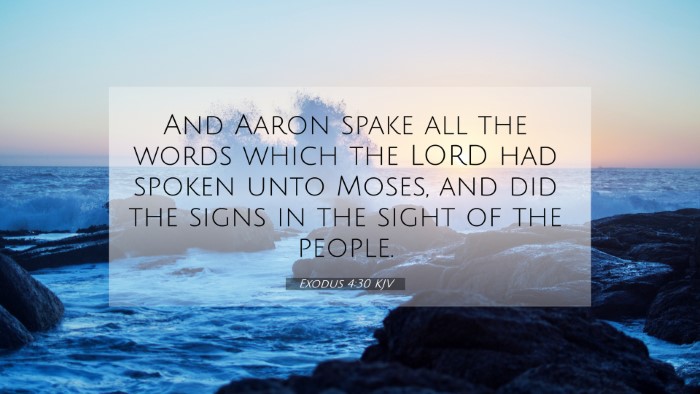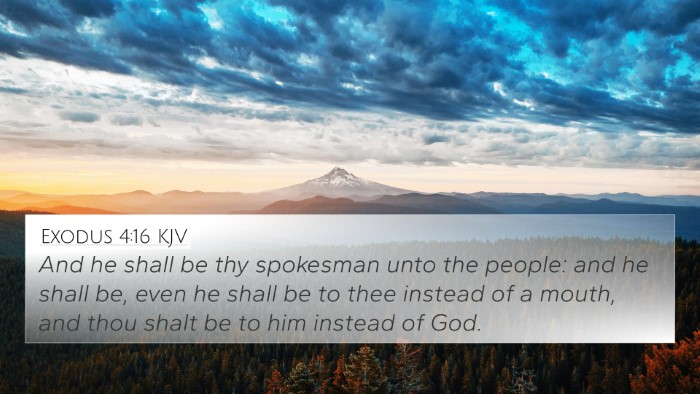Understanding Exodus 4:30
Exodus 4:30 states: "And Aaron spoke all the words which the Lord had spoken to Moses, and did the signs in the sight of the people." This verse is pivotal in understanding the early ministry of Moses and Aaron in their mission to deliver the Israelites from Egypt.
This verse highlights the importance of divine communication and validation through signs as Moses, chosen by God, partners with his brother Aaron to convey God's message to the Israelites. The act of speaking God’s words and performing miraculous signs underlines a critical theme in the Old Testament: God empowering human agents for His purposes.
Key Insights from Commentaries
-
Matthew Henry:
Henry emphasizes the unification of Moses and Aaron's roles in fulfilling God's command. He notes the significance of Aaron's speech, as he becomes the mouthpiece for Moses, reinforcing the idea of divine assistance when one feels inadequate. The signs performed were essential to establish their credibility among the Israelites.
-
Albert Barnes:
Barnes points out that the collaboration of Moses and Aaron demonstrates God's intention to use multiple individuals for His divine work. The emphasis on signs accompanying their message underscores the need for tangible proof to foster belief and confidence in God's promise of liberation.
-
Adam Clarke:
Clarke discusses the historical context, suggesting that the words spoken by Aaron and the signs performed were crucial in a culture that heavily relied on visual signs and wonders to affirm divine authority. This strategic approach was key to convincing the burdened people of their impending deliverance.
Related Bible Cross References
- Exodus 3:10: God's commission to Moses to lead His people out of Egypt.
- Exodus 4:1: Moses expresses doubts about the Israelites believing him, leading to God's assurance.
- Exodus 4:21: God instructs Moses to perform signs as a means of demonstrating His power.
- Exodus 7:1-2: God states that Moses will be like God to Pharaoh, and Aaron will be his prophet.
- Exodus 12:36: The Israelites finally receive favor in the sight of the Egyptians, fulfilling God's promise for their deliverance.
- Numbers 20:7-8: God speaks to Moses again, emphasizing ongoing communication and direction.
- Acts 7:30-36: Stephen recounts Moses' life and the signs performed before the Israelites.
Thematic Connections
This verse not only serves as a historical recounting but also plays a significant role in thematic Bible verse connections, including:
- The power of speech in conveying divine truth.
- The usage of signs as confirmed authority in the ministry.
- The partnership in ministry as seen between Moses and Aaron, reflecting how God often works through teams.
- The fulfillment of God's promises through obedient servants.
Conclusion
The insights drawn from Exodus 4:30 and its commentaries reveal profound truths about God's method of communication, the role of divine signs, and the partnership in ministry. This verse illustrates foundational principles relevant not only to its historical context but also to the broader narrative of Scripture, making it a significant passage in understanding God's ongoing relationship with His people.
Practical Applications
As we reflect on this verse, consider the following practical applications:
- Recognizing the importance of speaking God’s word boldly in our lives.
- Understanding that God equips us, despite our insecurities, to fulfill His plans.
- Valuing the collaborative nature of ministry and support within a faith community.
- Seeing the miraculous works of God in our day-to-day lives as confirmations of His presence and promises.



